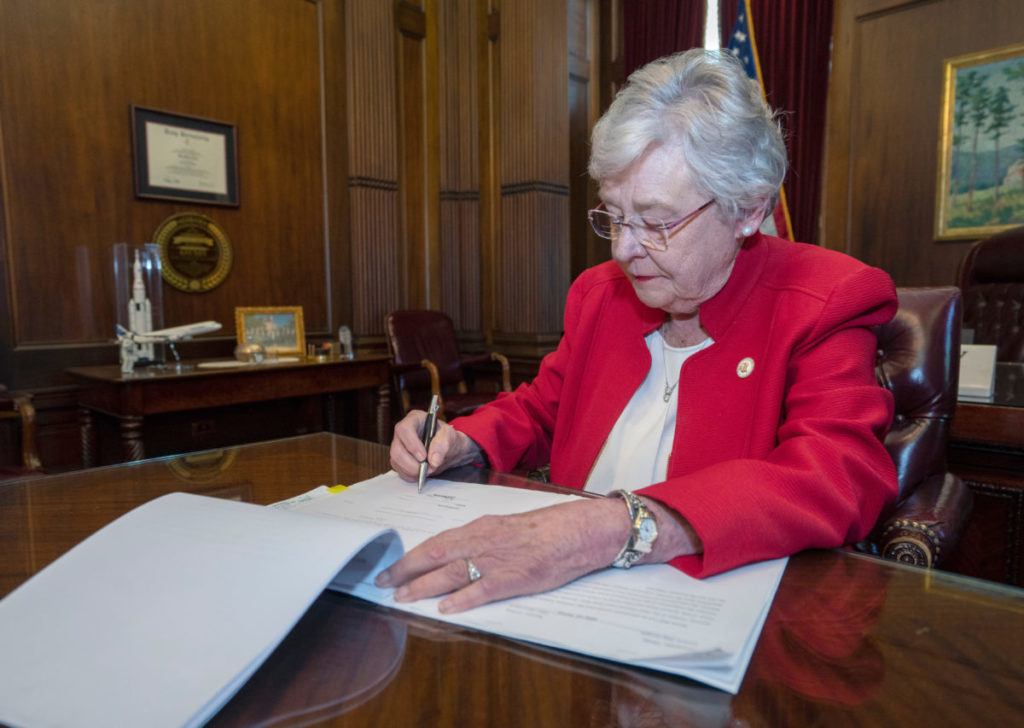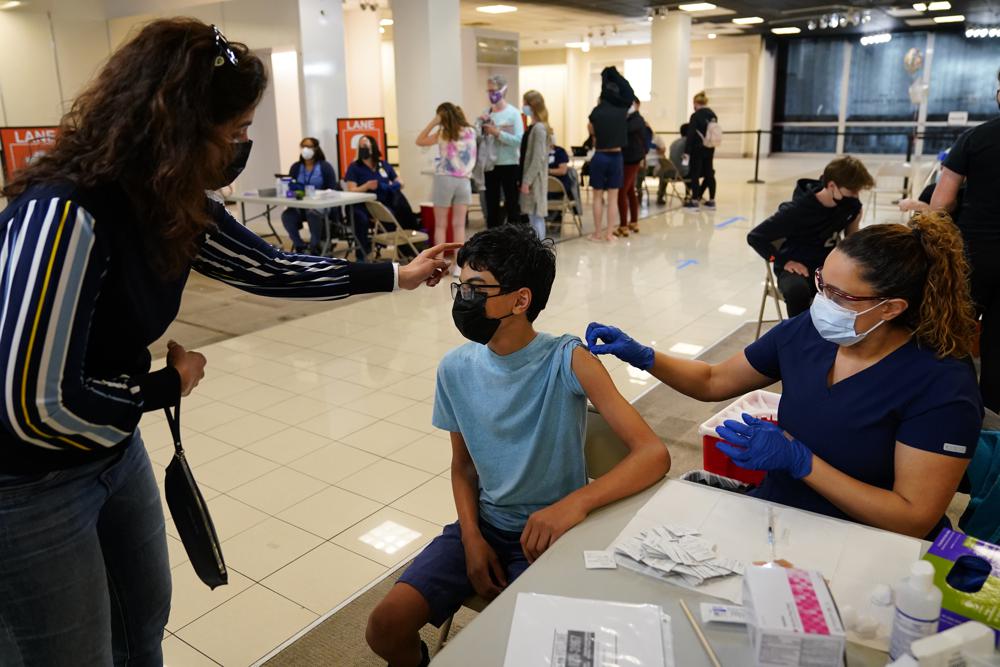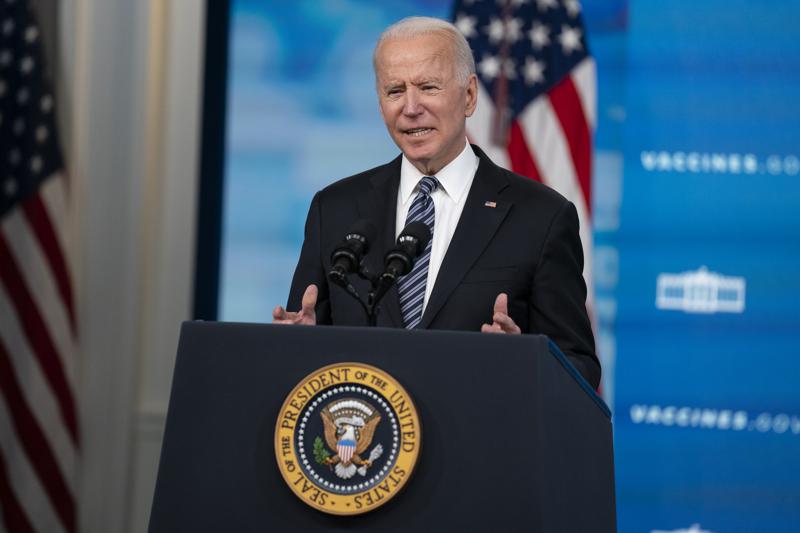Kay Ivey signs three bills into law

Gov. Kay Ivey has been busy today, signing three bills into law: Senate Bill 193, House Bill 437, and Senate Bill 388. Senate Bill 193 includes supplemental appropriations from the Education Trust Fund Advancement and Technology Fund to various school systems, colleges, and universities, as well as other entities. Regarding Bill 193, Ivey stated, “Investing in Alabama’s students in a productive way is investing in our future. It is critical, now more than ever, to find ways to improve our students’ learning journeys, and I am proud to officially put pen to paper on Senate Bill 193 to put funds into much-needed projects in our schools. As long as I am your governor, putting a greater emphasis on our schools will be a top priority.” House Bill 437, the wine shipment bill, sponsored by Rep. Terri Collins, was passed as well. This bill allows wine manufacturers to ship wine directly to Alabama residents. The bill states, “Under existing law, a producer of alcoholic beverages may only sell its product to distributors or wholesalers, or directly to consumers in limited quantities at its licensed premises. This bill would allow a licensed wine manufacturer to obtain a wine direct shipper permit from the Alcoholic Beverage Control Board to allow the permittee to ship limited quantities of table wine directly to Alabama residents who are at least 21 years of age for their personal use.” Kay Ivey stated, “I want to first thank Representative Terri Collins for putting this legislation forward because it is certainly something the people of Alabama want available to them. Thank you to all involved in putting together a good, clean bill. We are moving Alabama with the times, and I am proud to officially make the wine shipment bill law.” Finally, Ivey also signed Senate Bill 388, the Daylight Savings Bill, into law. The bill, sponsored by Steve Livingston, adopts Daylight Savings Time statewide if Congress amends Federal law to allow it. Ivey commented on Twitter, “Today I signed: SB193- This includes supplemental appropriates from the ETF Advancement & Technology Fund to various entities. HB437- the wine shipment bill. SB 388- the Daylight Savings Bill.” Today I signed: ✅ SB 193 – This includes supplemental appropriations from the ETF Advancement & Technology Fund to various education entities. ✅ HB 437 – the wine shipment bill ✅ SB 388 – the Daylight Savings bill#alpolitics pic.twitter.com/k4AlKlUd5g — Governor Kay Ivey (@GovernorKayIvey) May 13, 2021
What they’re saying: Leaders respond to conflict in Israel

Alabama leaders are responding to the recent violence in Israel. As tensions escalate, the Associated Press reported that Israel’s defense minister has approved the mobilization of 9,000 more reservist troops, and Israel’s military spokesman says forces are massing on the border with the Gaza Strip. Truce efforts by Egypt, Qatar, and the United Nations have shown no sign of progress. President Joe Biden called Israel’s Prime Minister Benjamin Netanyahu to support Israel’s right to defend itself, and Secretary of State Antony Blinken said he was sending a senior diplomat to the region. The United States is sending envoy, Hady Amr, deputy assistant secretary for Israel and Palestinian affairs, reported Reuters. Rep. Mo Brooks commented on Twitter, “Unlike @SenSanders, @RepAOC, @Ilhan, and the rest of the Socialist Democrats who stand with Iranian-backed Hamas terrorists, I stand with Israel. Israel has a right to defend itself, and I condemn all those who persist in attacking America’s closest ally in the Middle East.” Unlike @SenSanders, @RepAOC, @Ilhan, and the rest of the Socialist Democrats who stand with Iranian-backed Hamas terrorists, I stand with Israel. Israel has a right to defend itself, and I condemn all those who persist in attacking America's closest ally in the Middle East. pic.twitter.com/34QaUVM7N3 — Mo Brooks (@RepMoBrooks) May 13, 2021 Gov. Kay Ivey stated on Twitter, “Alabama stands with Israel!” Alabama stands with Israel! 🇮🇱 — Governor Kay Ivey (@GovernorKayIvey) May 12, 2021 Rep. Barry Moore stated on Twitter, “Through the Abraham Accords, Trump made historical steps towards peace in the Middle East. In comparison, Biden’s weakness is fueling violence, as Israel is under attack from Hamas terrorists. Now is the time for strong leadership, Mr. President. We must stand with Israel.” Through the Abraham Accords, Trump made historical steps towards peace in the Middle East. In comparison, Biden's weakness is fueling violence, as Israel is under attack from Hamas terrorists. Now is the time for strong leadership, Mr. President. We must stand with Israel. — Rep. Barry Moore (@RepBarryMoore) May 12, 2021 Jerry Carl commented on Twitter, “Israel is our most important ally in the Middle East, and we stand with them against the violence and attacks from Hamas.” Israel is our most important ally in the Middle East, and we stand with them against the violence and attacks from Hamas. https://t.co/FU4Bqp3JNL — Rep. Jerry Carl (@RepJerryCarl) May 10, 2021
Dan Sutter: Can we afford this spending?

Washington borrowed $4 trillion in 2021, and national debt as a percentage of GDP is higher than at the end of World War II. And the Biden administration is proposing spending trillions on infrastructure and families bills. Are our politicians bankrupting America? Economists Jason Furman and Lawrence Summers argue no. These prominent economists – Summers was Treasury Secretary under President Bill Clinton and Furman head of the Council of Economic Advisors under President Barack Obama – contend that the national debt, appropriately scaled, is not at an all-time high due to today’s historically low-interest rates. Their paper covers a lot of ground. I will start with interest rates and borrowing. Lower interest rates allow home buyers to get larger mortgages. Lenders compare the monthly payment and a borrower’s income. With lower interest rates, more of the monthly payment can go toward principal. The debt-to-GDP ratio does not consider the interest rate. Furman and Summers argue that the interest-to-GDP ratio (preferably adjusted for inflation) is a better measure, akin to monthly mortgage payment relative to income. The interest-to-GDP ratio is not historically high because of low-interest rates. Can interest rates possibly remain so low? To evaluate this, remember that real interest rates (meaning adjusted for inflation) are more relevant than the official rate. And the risk of a loan not being repaid in full, or default risk, must be priced into the real interest rate. Loans with high default risk, like payday loans, face high real interest rates. Economists refer to the risk-free real interest rate, what lenders would charge on a loan sure to be repaid. The risk-free real interest rate has been zero, and real interest rates have been trending downward since the 1980s across all major industrial economies. Furman and Summers argue that this must be due to fundamental economic factors. Might the Federal Reserve be keeping interest rates artificially low? As a matter of principle, almost all economists believe that money must be “neutral” in the long run. Neutrality means relative to production, which depends on real factors, things like labor, machines, raw materials, and technology. Dollars are ultimately green pieces of paper that cannot magically transform into cars or houses. Any impacts of money on production must be short-term. A thirty-year trend qualifies as the long run. Furman and Summers observe further that long-term interest rates are not anticipating an increase. Interest rates are market-determined prices based on the interplay of the demand for borrowing and the supply of savings. Markets are forward-looking and smarter than any one expert. Furman and Summers believe that at current interest rates, Federal debt of 400 percent of GDP (over $80 trillion) is sustainable. Economists who believe that markets work well, like me, must accept the market’s judgment on low risk-free interest rates. But although Treasury securities have always been the quintessential risk-free investment, Uncle Sam may not always qualify for this interest rate. Loans are voluntary transactions between willing borrowers and willing lenders. Lenders who think that politicians are bankrupting America can choose not to purchase Treasury securities at the risk-free rate. Furthermore, because our debt is always refinanced, investors must sell in Treasury securities to get out of the investment. Investors must believe that Uncle Sam is a good risk and that future investors will as well. The risk-free status of Federal debt depends on investor sentiment, not just economic fundamentals. Because markets are forward-looking, long-term interest rates on Treasury securities should start rising as soon as investors think the national debt is excessive. Markets show no sign of this, as Furman and Summers note. Political talk can be cheap; pundits predicting an impending Federal bankruptcy may still be invested in Treasury securities. Investors lend on favorable terms to the U.S. government because of its ability to tax us. Despite recent record deficits, investors still think that we are good for Washington’s borrowing. But investor sentiment can change far quicker than economic fundamentals. Daniel Sutter is the Charles G. Koch Professor of Economics with the Manuel H. Johnson Center for Political Economy at Troy University and host of Econversations on TrojanVision. The opinions expressed in this column are the author’s and do not necessarily reflect the views of Troy University.
Kay Ivey announces vaccine eligibility expanded to individuals ages 12 and older, effective immediately

On Thursday, Governor Kay Ivey announced Alabama is expanding COVID-19 vaccination eligibility to include individuals age 12 and older, effective immediately. The U.S. Food and Drug Administration (FDA) authorized the Pfizer-BioNTech COVID-19 vaccine for emergency use in adolescents on Monday. The Center for Disease Control Director Rochelle Walensky stated, “The CDC now recommends the vaccine be used among this population, and providers may begin vaccinating them right away.” Ivey commented, “This is great and welcome news that the Pfizer-BioNTech vaccine will now be available for Alabamians 12 and up, offering another option for families in our state as we get back into full gear. We have seen good success so far with these safe and effective vaccines, and I encourage parents and children to consult with your pediatrician if you have any questions. The vaccine is our ticket back to normal, and I continue to feel optimistic and hopeful in the positive direction we are moving in as a state.” The Pfizer vaccine is available to individuals age 12 and up. The Moderna and Johnson & Johnson vaccines are available to individuals 18 years of age and older. On Twitter, Ivey stated, “Alabama is expanding #COVID19 vaccination eligibility to include individuals age 12 & older, effective immediately. This is great news! Folks, the vaccine is our ticket back to normal.” Alabama is expanding #COVID19 vaccination eligibility to include individuals age 12 & older, effective immediately. This is great news! Folks, the vaccine is our ticket back to normal. #alpolitics @ALPublicHealth https://t.co/tJenuuoqGn — Governor Kay Ivey (@GovernorKayIvey) May 13, 2021 “We encourage the vaccination of adolescents ages 12 and older to get the protection offered by the Pfizer COVID-19 vaccine,” State Health Officer Dr. Scott Harris stated. “This vaccine will be available at private providers and other sites which have Pfizer COVID-19 vaccine available.” As of May 12, 2,722,909 doses of COVID-19 vaccines have been administered.
GASP and Party for Socialism and Liberation set to support Sex Worker Rally being planned in Birmingham

A rally in support of sex workers is being planned in the city of Birmingham, and while the organizers won’t release the location details publicly they have laid out their goals, speakers, and aligned social groups in several public Facebook posts. The first speaker listed is Nina Morgan of GASP. According to her bio on their website, “She became radicalized first and foremost by her parents, who were divorced but often had conversations with her and her twin brother about the social ills of the world.” GASP will also have a table at the event alongside the Party for Socialism and Liberation – Birmingham. Their group has recently focused on their support of Palestine, ending the sanctions against Cuba, and support of the Black Lives Matters movement. Stated in their latest Facebook post is, “Without the economic, political, military and diplomatic backing of U.S. imperialism, the state of Israel would not last long.” According to The Global Network of Sex Work Projects (NSWP) website, the day is an annual event. The group’s website says they “exist to uphold the voice of sex workers globally and connect regional networks advocating for the rights of female, male, and transgender sex workers.” NSWP’s work is based on three core values: Acceptance of sex work as work. Opposition to all forms of criminalization and other legal oppression of sex work (including sex workers, clients, third parties*, families, partners, and friends). Supporting self-organization and self-determination of sex workers The event follows efforts by local law enforcement to crack down on sex work. Al.com reported in February that more than a dozen people were arrested in a reverse prostitution ring in Shelby County. Regarding the arrests, Sheriff’s Major Clay Hammac stated, “The purpose of these operations is to aggressively pursue patrons of the sex-trafficking industry, which is directly connected to human trafficking. Furthermore, law enforcement wishes to demonstrate a zero-tolerance for criminal solicitation and attack the demand for these type enterprises.” An earlier version of this story ended with a note that read, “We have hidden the name of the organizer and author of the posts as she has stated that she has received harassment directed towards her.” That was in response to her posting, “I’m tired of the creeps in my DMs on here and hesitate to even open them because of that.” Additionally she noted, “Regarding the upcoming S3x W0rker (SW) rally, comments on the flyer were (stop sign) understandably halted (stop sign) by group admin as the dialogue became more disrespectful.” She has since made it clear that she does not agree with our decision to not publish her name. We have since updated the story to reflect the event organizer.
Scientists race to study variants in India as cases explode

A potentially worrisome variant of the coronavirus detected in India may spread more easily. But the country is behind in doing the kind of testing needed to track it and understand it better. On Monday, the World Health Organization designated the new version of the virus a “variant of concern” based on preliminary research, alongside those that were first detected in Britain, South Africa, and Brazil but have spread to other countries. “We need much more information about this virus variant,” said Maria Van Kerkhove, WHO’s technical lead for COVID-19. “We need more sequencing, targeted sequencing to be done and to be shared in India and elsewhere so that we know how much of this virus is circulating.” Viruses mutate constantly, and the surge in infections here has resulted in more opportunities for new versions to emerge. But India was slow to start the genetic monitoring needed to see if those changes were happening and if they were making the coronavirus more infectious or deadly. Such variants also need to be monitored to see if mutations help the virus escape the immune system, potentially leading to reinfections or making vaccines less effective. For now, the WHO stressed that COVID-19 vaccines are effective at preventing disease and death in people infected with the variant. Indian scientists say their work has been hindered by bureaucratic obstacles and the government’s reluctance to share vital data. India is sequencing around 1% of its total cases, and not all of the results are uploaded to the global database of coronavirus genomes. When there isn’t enough sequencing, there will be blind spots, and more worrisome mutations could go undetected until they’re widespread, said Alina Chan, a postdoctoral researcher at Broad Institute of MIT and Harvard who is tracking global sequencing efforts. Ravindra Gupta, a professor of clinical microbiology at the University of Cambridge, said: “It has all the hallmarks of the virus that we should be worried about.” First detected in the coastal Maharashtra state last year, the new variant has now been found in samples in 19 of the 27 states surveyed. Meanwhile, a variant first detected in Britain has declined in India in the past 45 days. Indian health officials have cautioned that it is too soon to attribute the nation’s surge solely to such variants. Experts point out that the spread was catalyzed by government decisions to not pause religious gatherings and crowded election rallies. Dr. Gagandeep Kang, who studies microorganisms at Christian Medical College at Vellore in southern India, said researchers need to figure out if the variant is capable of infecting those who previously had COVID-19 and, if so, whether it could result in severe disease. “I don’t get why people don’t see this as important,” she said. Sequencing efforts in India have been haphazard. The country uploads 0.49 sequences per 1,000 cases to GISAID, a global data-sharing effort, Chan said. The U.S., which had its own troubles with genetic monitoring, uploads about 10 in 1,000, while the U.K. does so for about 82 per 1,000 cases. Late last year, Indian government institutions were ordered to buy domestic raw materials wherever possible, in keeping with Prime Minister Narendra Modi’s goal of turning India “self-reliant.” This proved impossible since all materials for sequencing were imported, resulting in more paperwork, said Anurag Agarwal, the director of the Institute of Genomics and Integrative Biology. The obstacles were most pronounced between September and December, he said, but his lab was able to find workarounds and continued sequencing. Other labs didn’t, and scientists said that should have been when India ramped up its sequencing because cases were declining at the time. Even after a federal effort started on Jan. 18, bringing together 10 labs that can sequence 7,500 samples weekly, the actual work didn’t start until mid-February due to other logistical issues, said Dr. Shahid Jameel, a virologist who chairs the scientific advisory group advising the consortium. By then, India’s cases had begun spiking. Jameel said India has sequenced around 20,000 samples, but only 15,000 were publicly reported because some were missing vital data. Until late last month, a third of the samples sent by states were unusable, he said. And now, the raging virus has infected many of the staff in the labs doing the work. “Many of our labs are facing this problem,” he said. Republished with the permission of the Associated Press.
Joe Biden signs order to beef up federal cyber defenses

President Joe Biden signed an executive order Wednesday meant to strengthen U.S. cybersecurity defenses in response to a series of headline-grabbing hacking incidents that highlight how vulnerable the country’s public and private sectors are to high-tech spies and criminals operating from half a world away. The order will require all federal agencies to use basic cybersecurity measures, like multi-factor authentication, and require new security standards for software makers that contract with the federal government. Officials are hoping to leverage the federal government’s massive spending power to make widely used software safer for the private sector as well. “The federal government needs to make bold changes and significant investments in order to defend the vital institutions that underpin the American way of life,” Biden said in his executive order. His actions come as the administration has been grappling with its response to a massive breach by Russia of federal agencies and ransomware attacks on private corporations. Biden’s executive order was announced shortly after the nation’s largest fuel pipeline restarted operations Wednesday, days after it was forced to shut down by a gang of hackers. The disruption of Colonial Pipeline caused long lines at gas stations in the Southeast. And the U.S. sanctioned the Kremlin last month for a hack of several federal government agencies, known as the SolarWinds breach, that officials have linked to a Russian intelligence unit and characterized as an intelligence-gathering operation. The AP previously reported that Russian hackers gained access to an email account belonging to the Trump administration’s acting homeland security secretary, Chad Wolf. “The United States is simply not prepared to fend off state-sponsored or even criminal hackers intent on compromising our systems for profit or espionage,” Sen. Mark Warner, the Virginia Democrat who leads the Senate Intelligence Committee, said in a statement. Warner praised the executive order but said Congress needs to do more to address the country’s vulnerabilities in cyberspace. The order also creates a pilot program to develop a rating system, similar to how New York City requires restaurants to display letter grades that correspond to scores received from sanitary inspections to show whether software and internet-connected devices were developed securely. Biden’s order will also require IT service providers that contract with the federal government to share certain information about cyber breaches, an information-sharing program that officials say will improve the county’s cybersecurity as a whole. The order also establishes a cybersecurity safety review board that’s tasked with studying major cyber incidents and coming up with concrete recommendations. It’s modeled after the National Transportation Safety Board. As a nod to how influential the private sector is in cybersecurity, the new board will be co-chaired by an official from the government and another from the private sector. Republished with the permission of the Associated Press.
Colonial Pipeline restarts operations days after major hack

The nation’s largest fuel pipeline restarted operations Wednesday, days after it was forced to shut down by a gang of hackers. The disruption of Colonial Pipeline caused long lines at gas stations in the Southeast due to distribution problems and panic-buying, draining supplies at thousands of gas stations. Colonial initiated the restart of pipeline operations late Wednesday, saying in a statement that “all lines, including those lateral lines that have been running manually, will return to normal operations.” But it will take several days for deliveries to return to normal, the company said. In the meantime, drivers have been finding gas stations with little or no gas in some Southeast states. The Colonial Pipeline, which delivers about 45% of the fuel consumed on the East Coast, was hit on Friday with a cyberattack by hackers who lock up computer systems and demand a ransom to release them. The hackers didn’t take control of the pipeline operations, but Colonial shut the pipeline down to contain the damage. The attack raised concerns, once again, about the vulnerability of the nation’s critical infrastructure. “What you’re feeling is not a lack of supply or a supply issue. What we have is a transportation issue,” said Jeanette McGee, spokeswoman for the AAA auto club. “There is ample supply to fuel the United States for the summer, but what we’re having is an issue with is getting it to those gas stations” because the pipeline is down. The pipeline runs from the Gulf Coast to the New York metropolitan region, but states in the Southeast are more reliant on it. Other parts of the country have more sources to tap. For example, a substantial amount of fuel is delivered to states in the Northeast by massive tankers. Jamar Gatison, 36, was filling up his tank in Norfolk, Virginia, Wednesday before a doctor’s appointment. “I’m about to run out of gas, so I have no choice,” the construction worker said while waiting in line at a 7-Eleven. “I’m also an Uber Eats driver. I also need gas for that,” said Gatison, who added he probably won’t deliver food Wednesday night because he doesn’t want to wait in line again while the shortage continues. In North Carolina, 65% of gas stations were out of fuel, according to Gasbuddy.com, a technology firm that tracks real-time fuel prices across the country. Just outside Raleigh, two people were charged with assault after fighting and spitting in each other’s faces while arguing over their spots in line Tuesday at a Marathon gas station, authorities said. North Carolina Democratic Gov. Roy Cooper urged people Wednesday to only buy gas if their tank is low and to report any instances of price gouging. “This news is another reason people do not need to panic buy gas right now unless they really need it,” he tweeted after Colonial announced it was restarting the pipeline. Georgians were also getting squeezed, with 43% of stations there out of gas, according to Gasbuddy.com. In Virginia, 44% of stations were out, and in South Carolina, 16% had no fuel. Along the Appalachian Trail, which stretches from Georgia to Maine through some of the most rugged and remote terrain in the Southeast, hikers depend on car and van shuttles to ferry them to and from the trail and get them back to civilization. “If I don’t have the gas, I’m not running,” said Ron Brown of Ellijay, Georgia, who operates Ron’s Appalachian Trail Shuttles and often takes hikers on hourslong trips from Atlanta’s airport into the north Georgia mountains, and to and from many points along the trail. Mary Goldburg, 60, of Norfolk, Virginia, waited more than 20 minutes for a slow-operating pump at a 7-Eleven to fill up her tank on Wednesday. Her job includes delivering T-shirts for events and other promotional products. “I can’t get paid until my customers get their products,” Goldburg said. The disruption is taking place at the time of year when Americans begin to become more mobile, especially as the nation emerges from the pandemic. Four to five cars were lined up at each pump at a Circle K in Clemmons, North Carolina. Several people said they had driven to multiple gas stations to find one that had gas. Across the street, gas stations were out of fuel. Mair Martinez, who works in landscaping, was filling up his lawn equipment and truck after checking several other gas stations without luck. “That’s why we’ve come in today, to fill up everything,” he said. Johnathan King, who works for an area towing company, was filling up his tow truck. He said he typically does 10 to 12 service calls a day, driving between several area cities. “It’s going to be very hard for us. Hopefully, we’ll be able to get through it,” he said. Multiple U.S. agencies coordinated to relax rules and enable fuel to be shipped faster using trucks, trains, or ships, but those changes had little impact Wednesday. The White House said the Department of Transportation is now allowing states served by the pipeline to use interstate highways to transport overweight loads of gasoline and other fuels. But there’s a national trucker shortage, so the industry isn’t able to put many more trucks on the road. Nationwide there are about 121,000 convenience stores that sell about 5,300 gallons per day of gasoline, accounting for about 80% of retail fuel sales. At many stores, demand has been two to five times the normal amount, said Jeff Lenard of the National Association of Convenience Stores, in a conference call with reporters. Retailers were even running out of fuel in parts of Florida that are not dependent on the pipeline, he said. Rationing has been imposed after some natural disasters, including Hurricane Sandy in 2012, but there could be resistance to that this time, especially if it looks like the pipeline could return to normal operation in a few days. It could also backfire. “Once rationing occurs, more panic buying ensues,” said Ryan McNutt, CEO of the Society of


